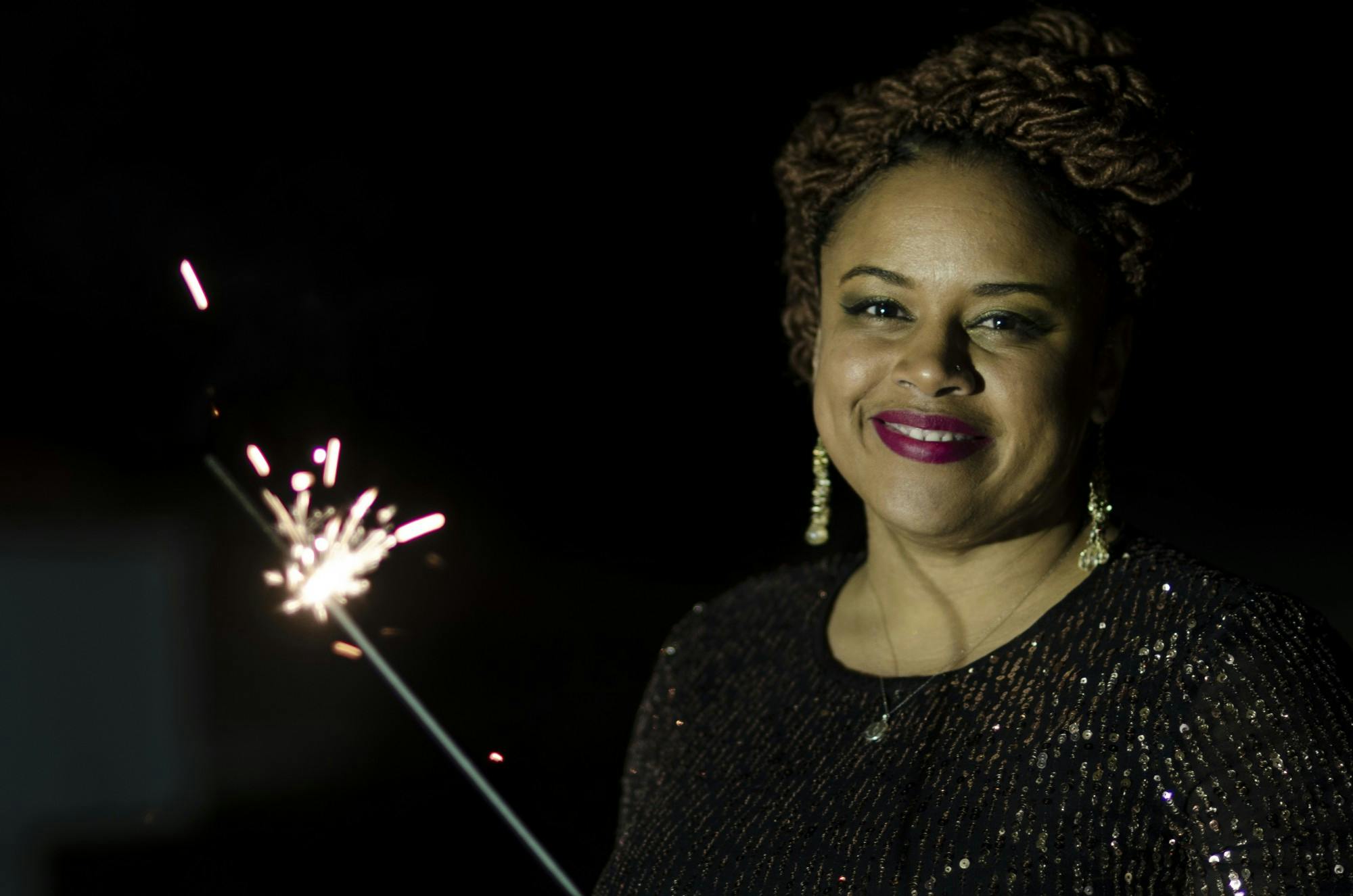By Tashmica Torok, founder and executive director of The Firecracker Foundation
Two years ago I stood outside of the downtown Lansing courthouse holding a sign that read, “#MeToo.” My knee caps were frozen because I was wearing a skirt and tights in frigid weather. I had arrived from another meeting without mittens and was descended upon by fellow survivors who tucked my frozen fingertips into someone’s extra gloves. The love was real and tangible. We waited for survivors and their families to leave the courtroom. With tears in our eyes, we handed them medals that said “Hero” on the front and “Celebrating your bravery” on the back. Some were moved and asked if they could hug us. We enthusiastically agreed and gave tight squeezes that we hoped would communicate how much we were in awe of their strength, how much we wished this had never happened, how much we hoped it would never happen again — to anyone.
There is an unspoken thing between survivors. No matter how different our stories are, there is a single thread woven in the tapestry of our collective experiences of sexual trauma. Silently, we see one another. We can hold the complexity of the impacts on our bodies, our minds, our spirits, our relationships and other private, secret things we barely speak about.
I am still in the trenches with many of those same survivors, activists and many more I have come to know since then. Survivors existed before this case and we were there to make sure those impacted by this perpetrator* felt like they had a community.
Today, we continue to look for evidence that we have shifted culture, created a safer, more humane world for those who are harmed and prevented harm from happening to others. It is often incredibly difficult to tell.
We still face institutions with powerful decision-makers enabling secrecy, lies and hoarding of critical resources — financial and otherwise — needed for a community of survivors to heal. While the focus of the Spartan community should remain on Michigan State University, I still must acknowledge that we are confronting child sexual abuse in the Catholic Church, USA Gymnastics, our own local public schools and many other places that should be safe. Those who cause harm can be and often are teachers, coaches, priests, pastors and mentors, but children are still more at risk to family members and loved ones than to anyone else in their sphere of influence.
I spend a lot of time with survivors sharing long, visionary conversations about how the world needs to change to prevent more harm, heal what has already happened and support a healthy practice of accountability. The answers are there. We have started to gather the stones that will get us across the river. We are prepared to throw them down and be on our way.
I wish I could say the biggest barrier to ending all sexual violence is the perpetrators who harm us. I wish I could say that we don’t have the answers. The truth is, it is the bystander, the decision-makers, the institutions holding and inciting disbelief that stand in our way.
Spartans, I encourage you to impose the high standards we have for Michigan State University on all members of the community. Survivors will never be able to end sexual violence on their own. We need you. We need allies to rise up and help break down the barriers so we can pave our way toward a community free of sexual violence.
*Larry Nassar. I intentionally chose to not call those impacted by his harm “his survivors” or use his name in the body of this letter because the focus is on the survivors of this community and how far we’ve come. That has little to nothing to do with him.
RELATED: The Army of Survivors: 'We as survivors are taking back our power'
Support student media!
Please consider donating to The State News and help fund the future of journalism.
Discussion
Share and discuss “Firecracker Foundation: ‘We need allies to rise up’” on social media.







